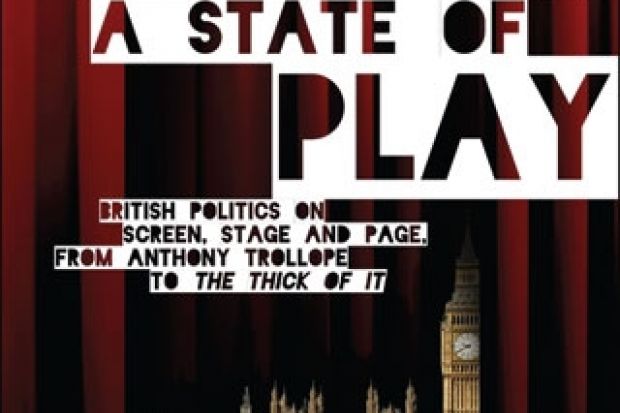Lawrence Black, professor of modern British history, University of York, is reading Steven Fielding’s A State of Play: British Politics on Screen, Stage and Page, from Anthony Trollope to The Thick of It (Bloomsbury, 2014). “In a witty, empirically dense and provocative book, Fielding argues that culture has always informed, for good and ill, popular perceptions of politics. It entwines fiction, films, plays and politics – where else can you find obscure turn-of-the-century cinema gems and forgotten ITV dramas alongside Anthony Trollope and Malcolm Tucker? Could this be a book that nudges political history out of its methodological impasse?”

Mary Evans, centennial professor in the Gender Institute, London School of Economics, is reading Clare Ungerson’s Four Thousand Lives: The Rescue of German Jewish Men to Britain, 1939 (The History Press, 2014). “A beautifully written and compelling account of the successful efforts made by the British Jewish community (and others) to create a haven in Sandwich for Jewish men. The daily lives of the men, their part in the generally welcoming local area and their subsequent futures are all vividly described, as is the tortuous, but always determined, process of their rescue.”

Paul Greatrix, registrar, University of Nottingham, is reading Jonathan Coe’s Expo 58 (Viking, 2013). “It’s all a bit Our Man in Havana in Brussels, but no worse for that. Coe has produced another excellent novel about a reserved civil servant who comes alive in the optimistic Expo world. His job is to look after the main British exhibit, a pub, but he gets caught up in Cold War shenanigans that cause him to question where his loyalties lie.”

Vanessa Pupavac, senior lecturer in international relations, University of Nottingham, is reading Ray Bradbury’s Something Wicked This Way Comes (Gollancz, 2008). “A wonderful American gothic allegory that shatters Macbeth’s despairing vision of our days as lighting fools the way to dusty death as we follow Jim and Will, 14-year-old friends racing off to the temptations of the carnival and the night. ‘Too late,’ says Will’s father. ‘I found you can’t wait to become perfect, you got to go out and fall down and get up with everybody else.’”

R. C. Richardson, emeritus professor of history, University of Winchester, is reading Solomon Northup’s Twelve Years a Slave (Hesperus Press, 2013). “The success of the recent film version of this book, first published in 1853, has spawned a number of reprints. This ‘autobiography’ is probably best understood as a sequel to Harriet Beecher Stowe’s evangelising novel Uncle Tom’s Cabin, published only one year earlier. The precise role of the original (white) anti-slavery editor in ‘presenting’ Northup’s narrative of kidnapping and enslavement is now impossible to determine but was surely considerable.”
Register to continue
Why register?
- Registration is free and only takes a moment
- Once registered, you can read 3 articles a month
- Sign up for our newsletter
Subscribe
Or subscribe for unlimited access to:
- Unlimited access to news, views, insights & reviews
- Digital editions
- Digital access to THE’s university and college rankings analysis
Already registered or a current subscriber? Login

